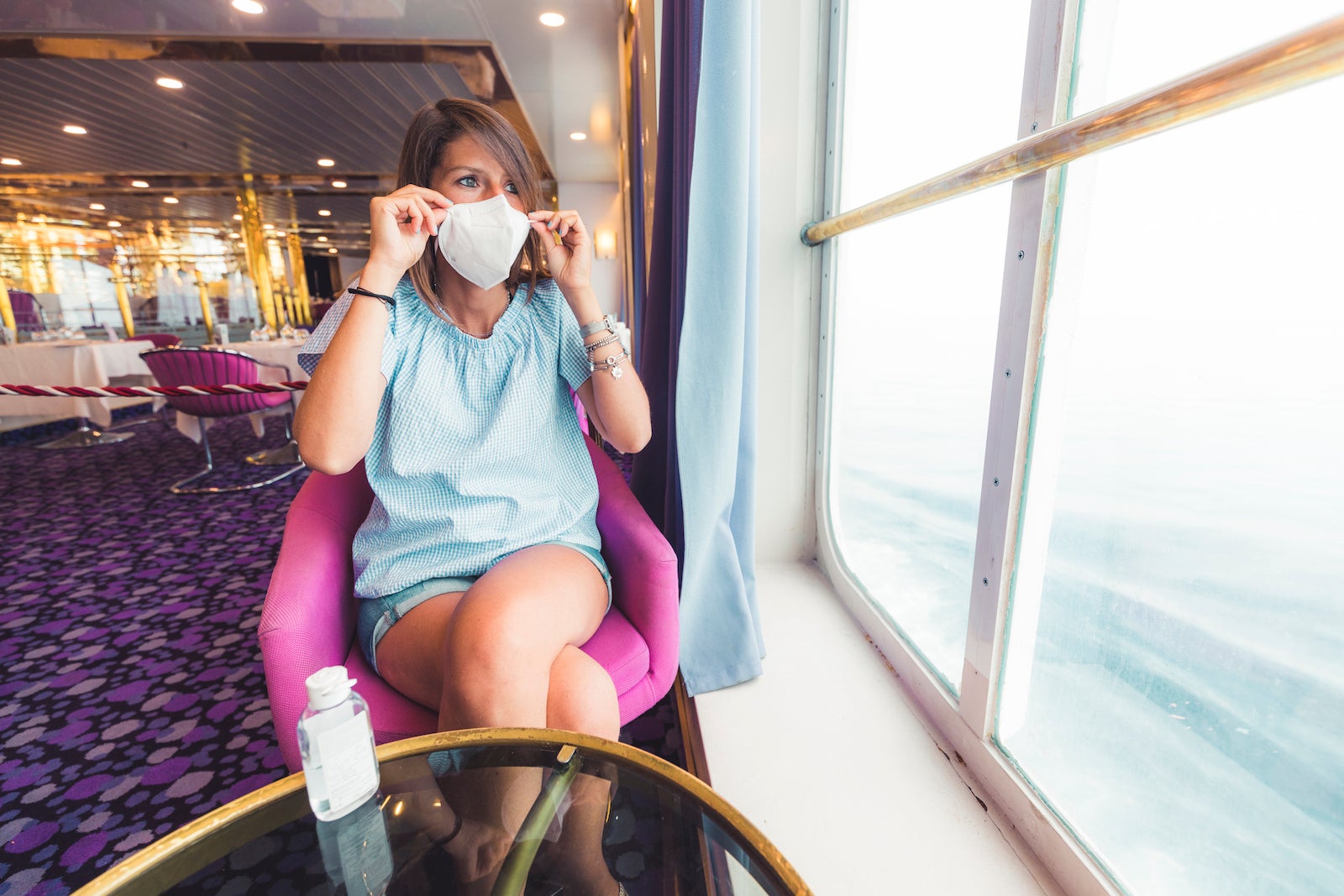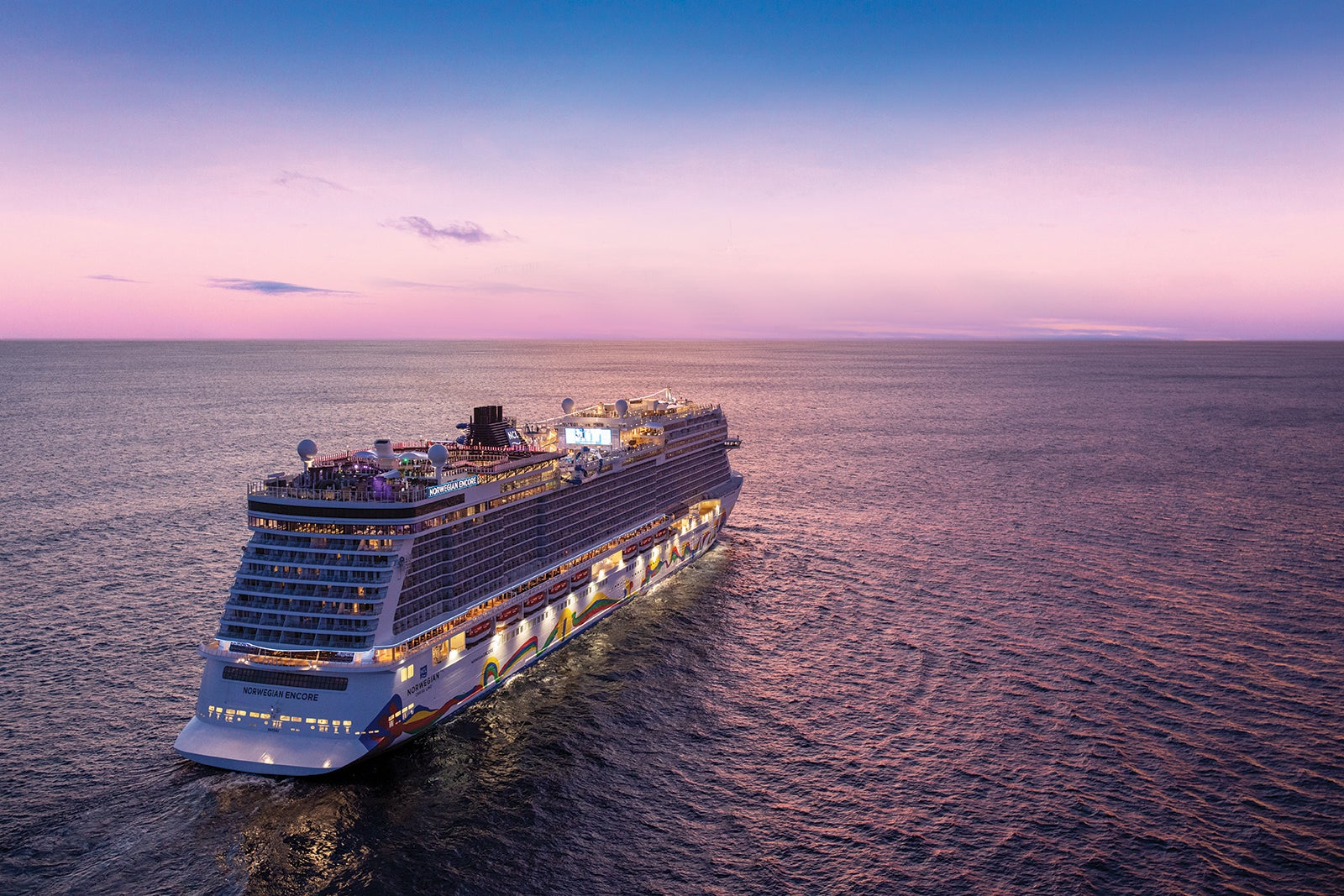The cruise industry is once again making headlines for onboard outbreaks of COVID-19 and ships being turned away from port due to sick passengers and crew.
This week, Royal Caribbean’s Symphony of the Seas saw 48 passengers and crew members test positive for COVID-19 (though it’s important to note that this is less than 1% of people on board). Cunard Line’s Queen Mary 2 disembarked 10 passengers in New York City because they tested positive during routine onboard testing.
Carnival Cruise Line‘s Carnival Panorama canceled a call at Cabo San Lucas after local authorities demanded that all passengers be tested to come ashore due to COVID-19 cases on board. St. Lucia denied entry to Royal Caribbean’s Explorer of the Seas after several crew members tested positive on board.
For cruise news, reviews and tips, sign up for TPG’s cruise newsletter.
Earlier in December, when Norwegian Breakaway was in the news, TPG’s Gene Sloan wrote about why 17 cases of COVID-19 on a cruise ship shouldn’t be a huge cause for concern.
But since then, the omicron variant has begun scrambling holiday travel plans in major U.S. cities and forced a lockdown in the Netherlands and possibly other European countries. Add that to an increase of media reports of COVID-19 on cruises, and holiday cruisers and travelers with booked cruises in 2022 are once again starting to worry.
So, how will omicron affect cruises this winter? We reached out to the cruise lines to learn what’s changing so you can make the best travel decisions for you and your family.
Mask policies are getting stricter

Remember those heady days of summer when masks were optional on cruises? Hold tight to your memories because maskless cruising is getting put on hold this winter.
Royal Caribbean, for example, has tightened its mask policy. All cruisers, vaccinated or not, now must wear masks indoors (except when eating or drinking) — including in vaccinated-only public areas. Carnival Cruise Line has also updated its mask policy to request (rather than encourage) all travelers 2 and older to wear masks indoors.
In a related move, smoking is no longer permitted in Carnival’s casinos until further notice because passengers must remove their masks to do so. Sister line Holland America has adopted similar policies around masking and indoor smoking.
Norwegian Cruise Line has made the switch from allowing its all-vaccinated passengers to skip masking on board to requiring all passengers and crew to wear masks indoors on voyages that embark through Jan. 31, 2022.
Vaccine policies could change
As we reported earlier this month, cruise lines such as Disney Cruise Line and Celebrity Cruises will soon require that children as young as 5 be vaccinated in order to cruise. It’s possible other cruise lines, such as Royal Caribbean, that have not made this change yet might take a stronger stance on vaccines than we’ve seen to date if omicron cases continue to skyrocket.
Currently, cruise lines consider passengers fully vaccinated 14 weeks after their final dose of a CDC- or WHO-approved vaccine. However, Dr. Anthony Fauci (the White House chief medical officer doctor and director of the U.S. National Institute of Allergy and Infectious Diseases) stated recently that U.S. regulators could redefine “fully vaccinated” to include a booster shot.
Should the CDC reconsider the term, watch for cruise lines to change their cruiser vaccine requirements to include a booster.
Currently, lines including Holland America are strongly encouraging cruisers over the age of 16 to get the booster shot, but none are requiring it, yet.
Expect more itinerary changes, both planned and unplanned
The cruise industry’s 2021 return to sailing has already seen plenty of itinerary changes as destinations rethink their safety policies or close their doors to ships carrying sick passengers and crew.
In addition to the aforementioned day-of itinerary changes, Norwegian Cruise Line and Azamara proactively canceled their winter 2021-2022 cruises from South Africa due to the omicron variant.

With COVID-19 cases on the rise, cruises will likely see more itinerary changes, both planned and unexpected. Cruise lines will be forced to react to ports that refuse entry or put additional debarkation conditions on ships carrying sick passengers and crew, as well as amend itineraries in advance for any countries that go into lockdown, update vaccine requirements or issue restrictions on certain nationalities entering their borders.
You’ll need to reset your cruise expectations
Omicron is causing COVID-19 cases to double every 1.5 to three days in places with community spread. Don’t be surprised if cruise lines start to report increased cases on board: Your home town or city is likely experiencing the same.
While cruise ships are now less likely to have zero cases of COVID-19, the number of positive cases on board remains low to date. Sure, 48 COVID-19 cases may seem like a lot, but that number represents less than 1% (0.78% to be exact) of the 6,091 passengers and crew on last week’s Symphony of the Seas sailing. Thousands of people on that cruise likely never encountered a sick shipmate.
Plus, all of the sick passengers on Symphony of the Seas had either mild or no symptoms, which is in line with current data on how omicron affects vaccinated people. In an earnings call on Dec. 20, Arnold Donald, president and CEO of Carnival Corp., noted that most cases of COVID-19 on Carnival ships have been mild or asymptomatic, saying, “We have not had lots of cases where people have to be hospitalized or worse.”
While cruise travelers might need to prepare themselves for a higher risk of catching COVID-19, you’re not necessarily at a greater risk of serious illness. However, immunocompromised and unvaccinated travelers might want to rethink any experiences involving large numbers of people indoors together.
Cruise lines remain dedicated to protecting passenger health and safety, and have taken CDC guidance seriously and continue to adjust policies and protocols, both in the U.S. and the destinations ships visit.
“We review the protocols on an ongoing basis with the public health experts, the medical teams on board, local health authorities and governments,” said Mark Tamis, Royal Caribbean’s senior vice president of hotel operations. “By following the data in real time and working collaboratively, we’re able to proactively act by adding measures of protection and prevention, temporary or permanent. A few examples are our face mask policy, pre-cruise testing for all guests and ensuring our crew members receive booster doses when they’re eligible.”
With months of data collection behind them, cruise lines know which protocols are working for them. In yesterday’s call, Donald touched on the fact that the cruise line’s containment strategies for COVID-19 on board have been effective. “When there are cases, the risk of propagation or spread of the virus has been very effectively controlled to date,” he said. “And as long as that continues to be the case, we’ll continue to sail with confidence. But we’ll adjust and adapt to what we need to.”
The key, now that omicron is here, is to make smart decisions for your personal situation and risk tolerance and to think critically about the data when deciding whether or not to continue with your cruise plans.
Cruise lines continue to offer flexible cancellation policies and extended final payment due dates, so you can make a vacation decision based on the most up-to-date guidance, rather than gambling your vacation dollars on what you guess the pandemic might look like 90 days from now.
In that way, omicron has not changed the game at all.
Featured photo by Increativemedia/Getty Images.

